Blog
Insights on Root Cause Healing
Explore our latest articles on restorative medicine.
Thank you! Your submission has been received!
Oops! Something went wrong while submitting the form.
.png)
Why the Question of Persistent Borrelia Still Matters
The article examines a pivotal 2026 literature review by Stricker, Fesler, and Johnson that addresses the long-standing controversy of persistent Lyme disease. By analyzing 56 animal and human studies, the review dismantles the common medical assumption that Borrelia burgdorferi is always eradicated by a short course of antibiotics.
.png)
DNA Connexions SuperFloss Lyme Panel: Direct Evidence in a World of Indirect Tests
Patients often complain, "I've been tested for Lyme and other tick infections, but the results are never clear." This understandable frustration often stems from how testing is conducted.

Why Brain Fog Is So Common—and So Misunderstood
This article explores brain fog as a functional impairment caused by the brain's response to systemic physiological stress rather than permanent structural damage. It identifies key upstream drivers—including toxins, chronic infections, and persistent stress physiology—that lead to neuroinflammation and mitochondrial dysfunction. By highlighting specific downstream mechanisms like Cerebral Folate Deficiency (CFD) and the limitations of "quick-fix" nootropics, the text argues that lasting cognitive clarity is achieved by addressing the Root Cause Triad to quiet inflammatory signaling and restore the brain's energy production.

Fatigue: A Downstream Signal of Immune Imbalance, Not a Personal Failure
This article reframes chronic fatigue as a strategic "energy reallocation" by the body rather than a simple lack of willpower or rest. It explains how the immune system, when activated by infections or toxins, uses inflammatory signals (cytokines) to prioritize survival over physical and cognitive stamina. By identifying fatigue as a downstream signal of upstream stressors—such as mitochondrial stress and persistent "fight-or-flight" physiology—the text provides a hopeful perspective: energy returns not by "pushing through," but by resolving the underlying immune imbalances within the Root Cause Triad.

When Anxiety Is a Signal from the Immune System
This text explores the physiological origins of anxiety, reframing it as an immune system response rather than a purely psychological issue. It explains how cytokines and chronic inflammation trigger the amygdala, creating a feedback loop where the body remains in a state of hyper-reactivity regardless of external stress. By shifting the focus from neurotransmitter imbalances to upstream immune drivers—such as infections, toxins, and the Root Cause Triad—the author suggests that addressing the body's internal strain is the key to resolving persistent, treatment-resistant anxiety.

What Patients Are Teaching Us: Reflections on the MyLymeData 2025 Research Chartbook
This article reflects on the findings of the MyLymeData 2025 Research Chartbook, a longitudinal patient-powered registry. The data suggests that successful "high responders" typically benefit from longer, consistent treatment durations (often over a year) and a comprehensive approach rather than isolated antimicrobial therapy. By aligning these findings with the IACIRS framework and the Root Cause Triad—addressing infections, toxins, and stress-response dysregulation simultaneously—the text highlights that durable healing from tick-borne illness is a gradual, cumulative process that requires addressing the body's full physiological picture over time.

Rethinking Parasites: What I See in My Patients
Clinical data shows parasites are often secondary issues. Learn why cleanses feel effective due to antifungal effects or accidental Babesia treatment, not worms.
.png)
CDC Validates Chronic Lyme
The CDC now validates chronic Lyme as a real biological condition. Learn how this shift supports the IACIRS model and addresses root-cause immune dysregulation.

Understanding Your Plan Improves Healing
Understand how root-cause medicine turns symptoms into clues, reduces nervous system stress, and empowers your healing journey through active partnership.

When the Body’s Alarm System Won’t Shut Off:
MCAS, hEDS, and POTS are often treated as separate conditions—but they’re usually downstream effects of a deeper immune imbalance. In this blog, Dr. Teresa Birkmeier-Fredal explains how chronic stealth infections, toxins, and stress can trigger IACIRS—disrupting mast cells, eroding collagen, and destabilizing circulation. Understanding the root cause offers a clear path to healing.
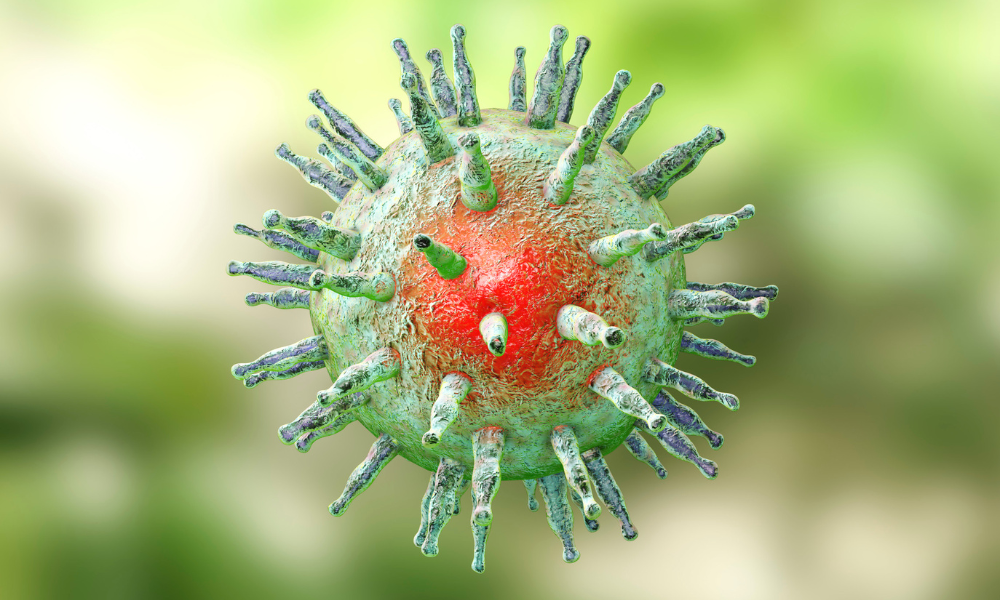
Epstein–Barr Virus: A Downstream Flag of Immune Dysfunction, Not the Root Cause
Many patients are told they have "reactivated Epstein–Barr virus" — but high antibody levels aren’t the whole story. In this article, Dr. Teresa Birkmeier-Fredal explains why EBV is more often a downstream signal of immune dysfunction, not the root cause of fatigue, brain fog, or autoimmunity. Learn how stealth infections, toxins, and chronic stress weaken your body’s defenses and allow dormant viruses to resurface — and how to shift from chasing viruses to healing the deeper imbalance.

Infection, Inflammation, and the Mind:
New research shows doxycycline may reduce the risk of schizophrenia—offering fresh insight into the powerful role of chronic infections and inflammation in mental health. Dr. Teresa Birkmeier-Fredal explains how stealth microbes like Borrelia (Lyme) may prime the brain’s immune system and why treating infection may be key to preventing serious psychiatric illness.

Getting to the Root of Chronic Illness: Who Should Consider IACIRS Testing and Treatment
If you're accumulating diagnoses like thyroid issues, autoimmune conditions, chronic fatigue, fibromyalgia, or mast cell activation, you're not alone. Often, these conditions are not isolated problems but rather the body's warning signs that an underlying issue has been neglected.

Candida, Aspergillus, and the Fungal Side of IACIRS
Infection-Associated Chronic Inflammatory Response Syndrome (IACIRS) is often linked to tick-borne infections, but fungal overgrowth (from Candida and Aspergillus) is a significant, overlooked contributor. These fungi can cause inflammation, toxins, and immune imbalances that drive IACIRS.

Why Leucovorin Works in Autism
Why are folate levels often normal in kids with autism—but their brains still starved of it? The answer lies in immune-driven folate transport issues—and why Leucovorin works when other forms don’t.

When Microbes Masquerade as Mood Disorders: What New Research on Pediatric Bipolar Disorder Reveals
What if your child’s mood swings or rage episodes aren’t psychiatric at all—but immune-driven responses to stealth infections? A new study suggests just that.

“I Just Don’t Want to Be Sick Anymore”:
Your labs may show Candida or chronic infections—but that doesn’t mean you are “sick.” Here’s why mindset is just as vital to healing as medicine.
.png)
The THC Treadmill: Why Daily Feels “Necessary”
Feeling like THC is the only thing that keeps you functioning? It might be treating its own withdrawal. Learn how to reset your brain—and reclaim your clarity.
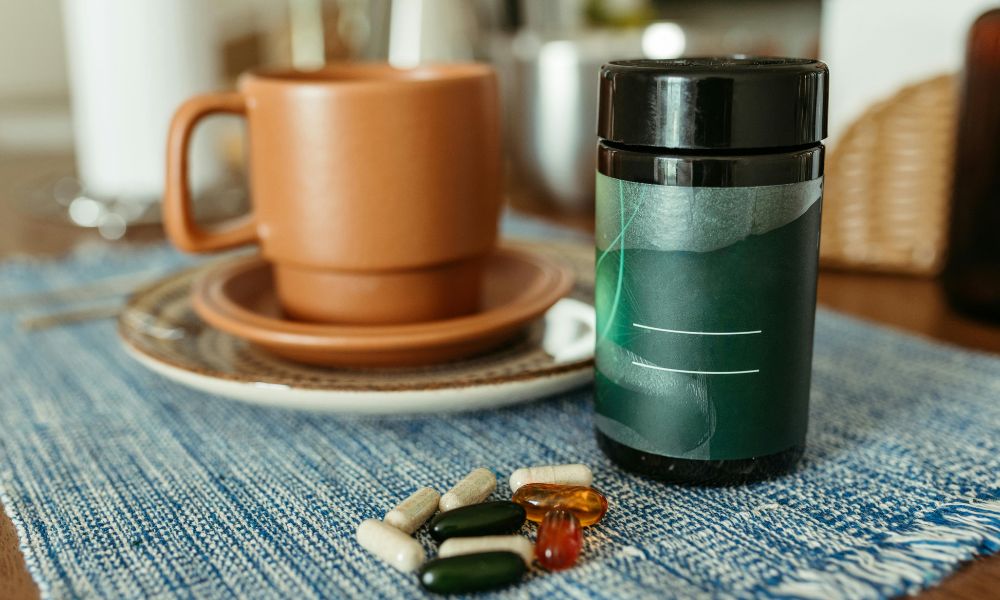
Why Folic Acid and Cyanocobalamin Don’t Belong in Your Supplement Cabinet
Not all B vitamins are created equal. Learn why folic acid and cyanocobalamin may be doing more harm than good—and which forms truly support healing.

Menopause Symptoms: When Hormones Aren’t the Whole Story
Hot flashes and brain fog aren’t always “just menopause.” When hormone therapy falls short, it’s time to look upstream at inflammation and immune dysfunction.
.png)
First-Line Support for GI Symptoms: What I Recommend Most Often
Gas, bloating, reflux, or constipation? These simple, first-line tools—like enzymes, zinc carnosine, and probiotics—can offer meaningful relief right away.
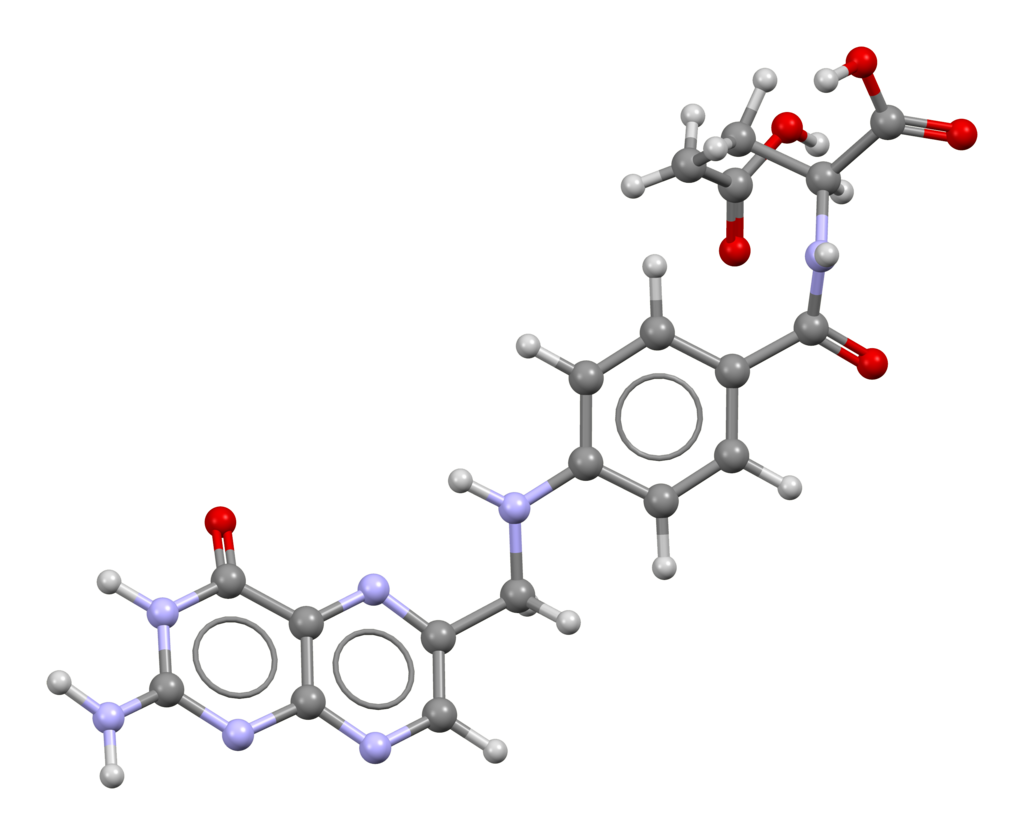
Folinic Acid: The Unsung Hero for IACIRS Recovery
If your symptoms flare during treatment—even with the “right” supplements—cerebral folate deficiency might be the missing link. Discover how folinic acid can bypass blocked pathways and support the brain during IACIRS recovery.

Keep Calm and Cover the Root Causes: The Real Answer to “How Long Will This Take?”
Healing isn’t about finding the one “magic” protocol—it’s about calmly and consistently addressing your root causes, at a pace your body can handle. This post breaks down the most honest answer to the question every patient asks: “How long will this take?”

Supporting Your Child Through a Blood Draw
With the right preparation, you can help your child feel calm, supported, and even proud of their bravery. Here’s how to make the experience easier for both of you.

How to Get the Most Out of Your Follow-Up Appointments
These simple, thoughtful tips can help make each follow-up visit more focused, productive, and empowering—so your treatment plan evolves with clarity and confidence.

How to Track Your Symptoms and Treatments for Better Healing
Wondering what’s actually helping—and what’s not? A symptom and treatment timeline can reveal powerful patterns that labs often miss. This guide shows you how to track your top symptoms, treatment changes, and lifestyle shifts so you and your provider can make faster, smarter decisions.

Before Your First Visit: Simple Daily Steps to Jumpstart Healing
You don’t have to wait for your first appointment to begin feeling better. This guide from Dr. Teresa Birkmeier-Fredal outlines simple, science-backed daily practices that reduce inflammation, support detox, and calm the nervous system—so you can start building momentum toward healing right now.

Making Sense of Your Lab Results: A Patient’s Guide
Confused by lab reports? You’re not alone. At Restorative Medicine, we don’t just look for “normal”—we look for optimal. This guide explains what your labs really mean, how we interpret them through a functional lens, and why your symptoms matter more than just the numbers.

When Tech Helps - And When It Doesn’t: A Patient’s Guide to Digital Tools for Healing
From Oura rings to mega-lab panels, health tech is everywhere. But are these tools helping you heal—or just making you anxious? In this guide, Dr. Teresa breaks down how to use digital platforms, trackers, and wearables without letting them run the show.
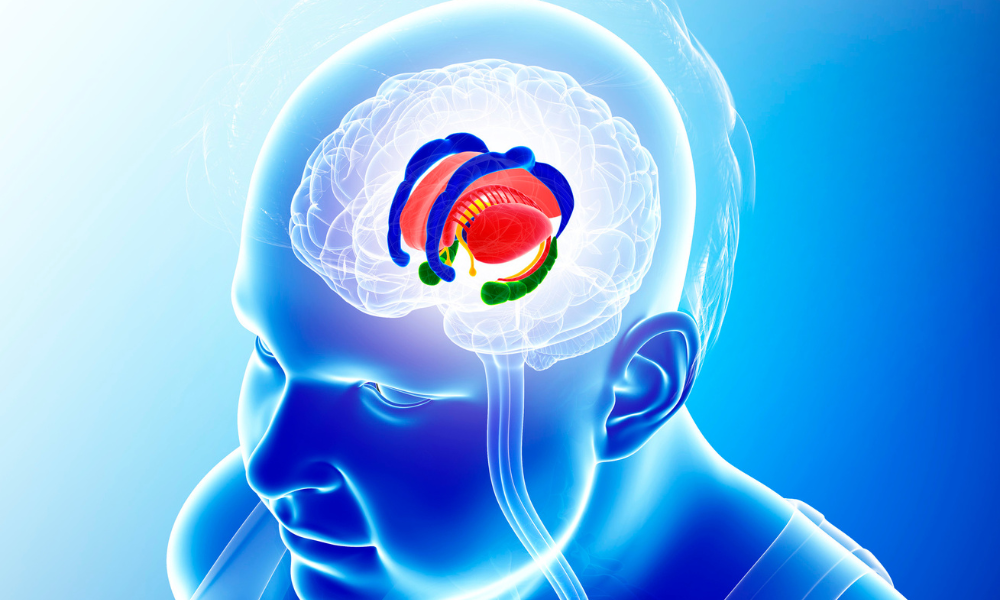
Limbic System Retraining: When Treatment Isn’t Enough
If you've plateaued despite antimicrobials, detox, or the "perfect" diet—your nervous system might be the missing piece. In this post, Dr. Teresa explores how brain retraining tools like Primal Trust™ can calm overactive fight-or-flight circuits, restore immune flexibility, and help patients finally move forward.

Start Here: The Habits That Help Your Body Heal
Before advanced testing or complex protocols, there’s a core set of lifestyle shifts that lay the groundwork for healing. In this guide, Dr. Teresa outlines the essential habits—hydration, food, sleep, air, and more—that regulate immunity, support detox, and restore energy in chronic illness.

When Your Brain Can’t Get Folate: How Mitochondrial Dysfunction Blocks Healing in Chronic Illness
When Your Brain Can’t Get Folate—Even if Your Labs Say You’re FineIf every detox leaves you foggy, anxious, or exhausted, your mitochondria may be blocking a key nutrient from reaching your brain: folate. Dr. Teresa explains how mitochondrial dysfunction contributes to Cerebral Folate Deficiency—and how folinic acid and targeted support can gently unlock healing.
.png)
Mitochondrial Mayhem: When to Repair, When to Protect—and Why It Matters in Chronic Infection
In chronic infections and IACIRS, energy crashes and hypersensitivity often signal deeper mitochondrial stress. Dr. Teresa walks you through how to assess, stabilize, and repair your mitochondria—so treatment becomes more tolerable, and healing actually sticks.
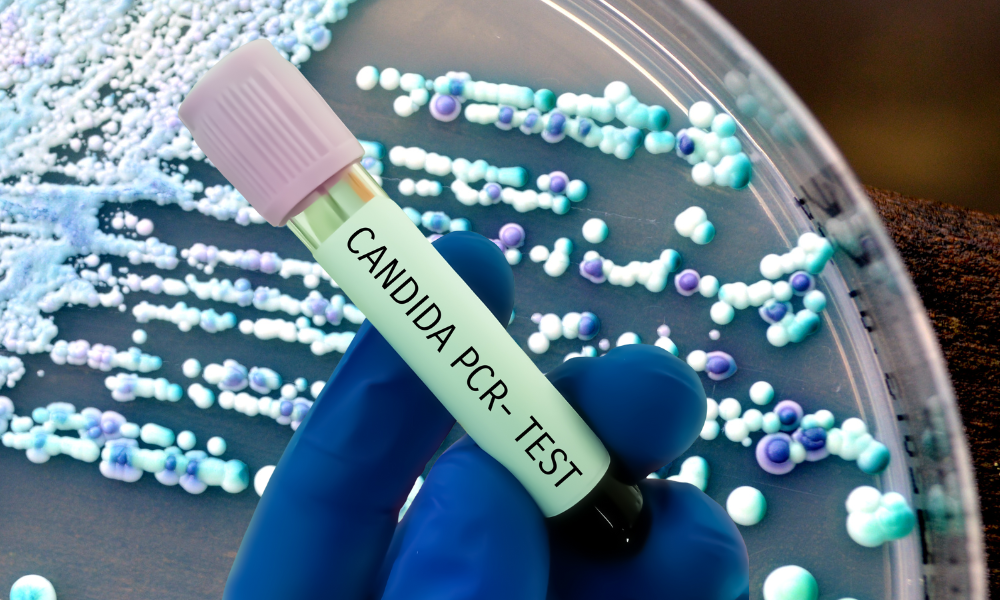
The Accidental Antifungals: Are Common Meds Quietly Treating Candida?
From statins to SSRIs, some common prescriptions appear to have antifungal side effects—whether doctors realize it or not. In this blog, Dr. Teresa explores how these “accidental antifungals” might explain symptom improvements in patients with chronic illness, and what it means for treating Candida on purpose.
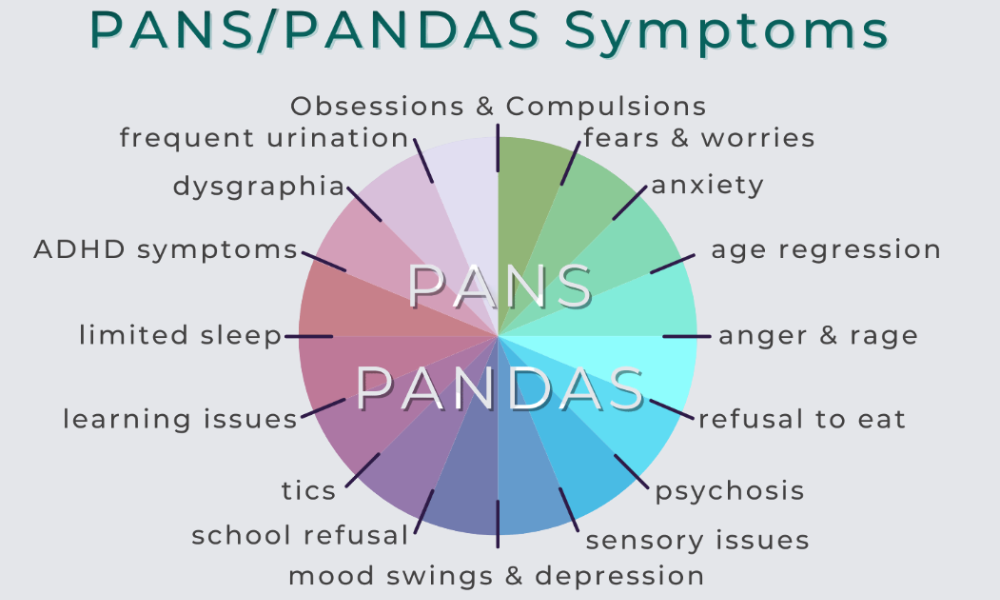
Why Many Doctors Don't Believe in PANS/PANDAS: The Clash of Paradigms
When a child’s psychiatric symptoms follow an infection, many parents suspect PANS/PANDAS—only to be met with medical skepticism. In this post, Dr. Teresa explores why the resistance runs deeper than data, and what needs to change in our understanding of brain-immune health.

The Biology of Belief: Why Mindset Matters More Than You Think
Mindset isn’t just emotional—it’s biological. In this post, Dr. Teresa explores how beliefs shape inflammation, hormones, and immune response, especially in complex chronic illness. Learn why protecting your peace is part of the treatment plan.

The Probiotic Paradox: Why Lactobacillus rhamnosus May Be the Only Safe Option in PANS/PANDAS
For children with PANS or PANDAS, even “gentle” supplements can backfire. In this post, Dr. Teresa explains why multi-strain probiotics often cause flares—and why Lactobacillus rhamnosus GG is the safest place to start.

Beyond TSH: Understanding Thyroid Health in the Context of CIRS and Chronic Infections
Fatigue, brain fog, and cold hands—but your TSH looks fine? In this post, Dr. Teresa explores why chronic infections and CIRS often disrupt thyroid signaling long before labs show it—and what real healing requires.
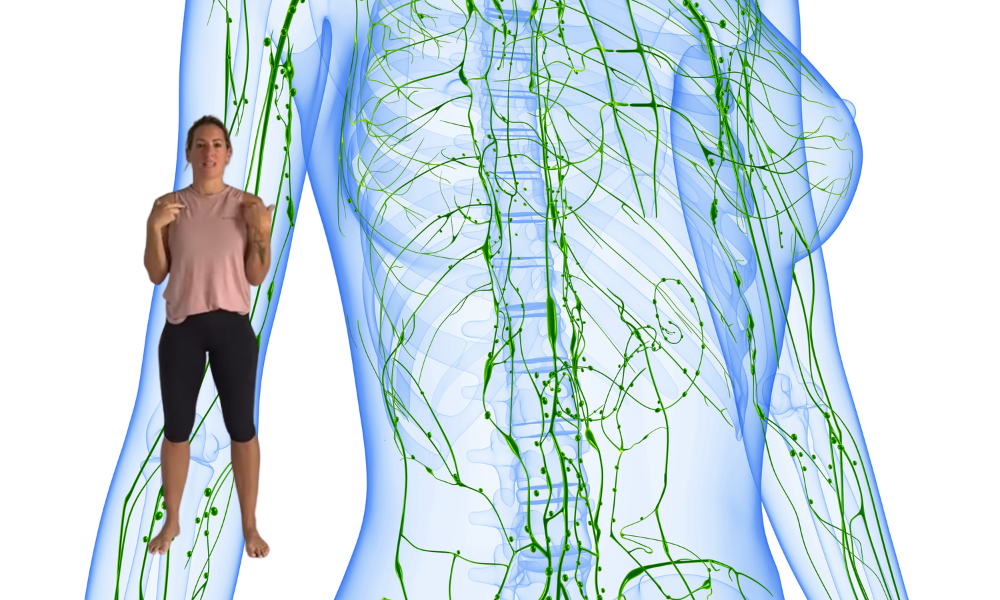
The Overlooked System: Lymph Flow in Chronic Illness and Recovery
Is Sluggish Lymph Holding Back Your Healing? Brain fog, puffiness, sinus congestion, and feeling worse after detox might not be random—they could signal lymphatic stagnation. In this post, Dr. Teresa shares practical tools to get your lymph moving and support deeper healing.

Understanding IL-6: The Inflammation Signal That Guides IACIRS Treatment
IL-6 is more than a lab number—it’s a real-time read on your immune system’s state. Dr. Teresa Birkmeier-Fredal explains how to use it as a guide in treating CIRS and IACIRS, and why understanding this signal can unlock real healing.

Biotoxin-Driven Immune Chaos: Rethinking Chronic Illness Through the Lens of IACIRS
Chronic symptoms often don’t begin with a single diagnosis—they begin with a storm of infection-triggered immune dysregulation. In this in-depth post, Dr. Teresa Birkmeier-Fredal introduces the IACIRS model and explains why healing requires more than symptom management—it requires rethinking chronic illness from the inside out.

Tired of Chasing Symptoms? It’s Time to Walk Upstream
If you feel like you’re doing all the right things and still not getting better, you may be stuck downstream—managing symptoms without addressing the real causes. In this story-based post, Dr. Teresa Birkmeier-Fredal walks you through what it really means to heal at the root.

Understanding the Cell Danger Response: Why Healing Stalls and What to Do About It
What if your healing is stalled not because you're missing a treatment—but because your body still thinks it's in danger? Dr. Teresa Birkmeier-Fredal explains the science of the Cell Danger Response and how to help your system shift out of survival mode and into real recovery.

Why Gut-Focused Protocols Fall Short
Tried every gut protocol and still stuck? It might not be just your gut. Learn why true healing starts upstream—with your immune terrain, not your microbiome.

Uncovering the Hidden Infections: Lessons from the 2021 French VBI PCR Study
Standard blood tests missing something? This groundbreaking French study found that nearly 90% of chronically ill patients had detectable infections—many not Lyme. It’s not about testing harder—it’s about testing smarter. Learn what this means for chronic illness recovery and how sample type and timing can change everything.

When Sleep Tracking Backfires: The Hidden Cost of Chasing Perfect Sleep
Obsessed with your sleep score? You might be losing rest trying to perfect it. Discover how tracking can disrupt your sleep—and what actually works instead.

Can Low Dose Naltrexone (LDN) Help with Mast Cell Activation Syndrome (MCAS)?
For those struggling with Mast Cell Activation Syndrome (MCAS)—especially in the context of CIRS, mold illness, or chronic infections—Low Dose Naltrexone (LDN) offers a powerful midstream intervention. While it doesn’t address the root cause, it can reduce reactivity, lower inflammation, and make upstream treatment more tolerable. Learn how it works, what the research says, and whether it might be the missing piece in your healing strategy.

Biomarkers and Progress Tracking: What Your Labs Can (and Can’t) Tell Us
Lab work can be a helpful guide—but it's not the whole story. Learn which biomarkers we track in chronic illness, what they really tell us, and how your symptoms still lead the way.

Tick Bites: What You Need to Know—and Why Acting Quickly Matters
Bitten by a tick? Don't wait and wonder. Learn exactly what to do, what symptoms to watch for, and why early action can make all the difference.

Why Methylated B Vitamins Can Cause Flares in People with CIRS
Methylated B vitamins are often recommended for MTHFR mutations—but for patients with CIRS, they can backfire if introduced too soon. Dr. Teresa Birkmeier-Fredal explains why these “helpful” nutrients sometimes trigger flares—and how to support methylation safely and strategically.

Microbial Load and EMF Sensitivity: Emerging Science, Practical Solutions
Are EMFs making chronic illness worse? Dr. Teresa Birkmeier-Fredal unpacks the emerging science on how electromagnetic fields may amplify microbial activity—and what you can do to protect your health without panic or overwhelm.

The GLP-1 Dilemma: Relief Today, Regret Tomorrow?
GLP-1 medications like Ozempic and Mounjaro offer short-term weight loss—but at what cost? Dr. Teresa Birkmeier-Fredal unpacks the risks, rebound effects, and why true healing requires more than symptom suppression. A must-read for anyone considering GLP-1s.

HLA Typing: A Map for Healing, Not a Life Sentence
Your genetics don’t seal your fate. In this post, Dr. Teresa Birkmeier-Fredal explains how HLA typing helps us understand immune response tendencies—not predict doom. Discover how this powerful tool guides personalized recovery after treating infections, toxins, and chronic stress.

MTHFR Mutations: What They Really Mean for Your Health
MTHFR mutations aren’t a health sentence—they’re a clue. Learn how to personalize your B12 and folate support to optimize methylation and energy naturally.

Spike Protein as a Biotoxin: Understanding the Risk and Exploring Ways to Support Your Body
Spike protein may linger like a biotoxin—fueling fatigue, inflammation, and immune imbalance. Learn how to support your body’s natural detox and recovery.

The High Cost of Daily THC Use: Why It’s a Band-Aid, Not a Solution
Daily THC might numb symptoms, but it stalls real healing. Learn why cannabis can block root cause recovery—and what to focus on instead.

Cerebral Folate Deficiency and Folate Receptor Autoantibodies: A Treatable Detail in a Bigger Root Cause Picture
Folate levels can look “normal” on labs—but not in the brain. Learn how this hidden imbalance may be driving developmental and neurological symptoms, and how to fix it.

RCC Labs: Direct Testing for Root Cause Clarity
Testing that actually means something. Discover how RCC Labs help decode symptoms and pinpoint toxins, microbes, and stress patterns driving illness.

Is “Digital ADHD” Hijacking Your Brain? Here’s What You Can Do About It
Feel scattered, unfocused, and constantly distracted? Your brain isn’t broken—it’s overwhelmed. Learn how to reset your focus in a digitally chaotic world.

The 16:8 Intermittent Fasting Guide: Eat, Fast, Thrive
Curious about intermittent fasting? Discover why the 16:8 method might boost your fat loss, brain power, and longevity—without the food stress.

Beyond Elimination: Why True Healing Isn’t About Restrictive Diets
If your healing plan feels like a lifetime of food restriction, it’s time for a rethink. True recovery means fixing root causes—not fearing every bite.

Is Autism Sometimes an Autoimmune Condition Triggered by Infections? A New Look at a Complex Puzzle
New research is revealing a surprising link between chronic infections, immune dysfunction, and autism spectrum symptoms. In this eye-opening article, Dr. Cynthia Libert explores how vector-borne pathogens, maternal health, and autoimmune encephalitis may play a hidden role in developmental regression—and what this could mean for prevention and healing.
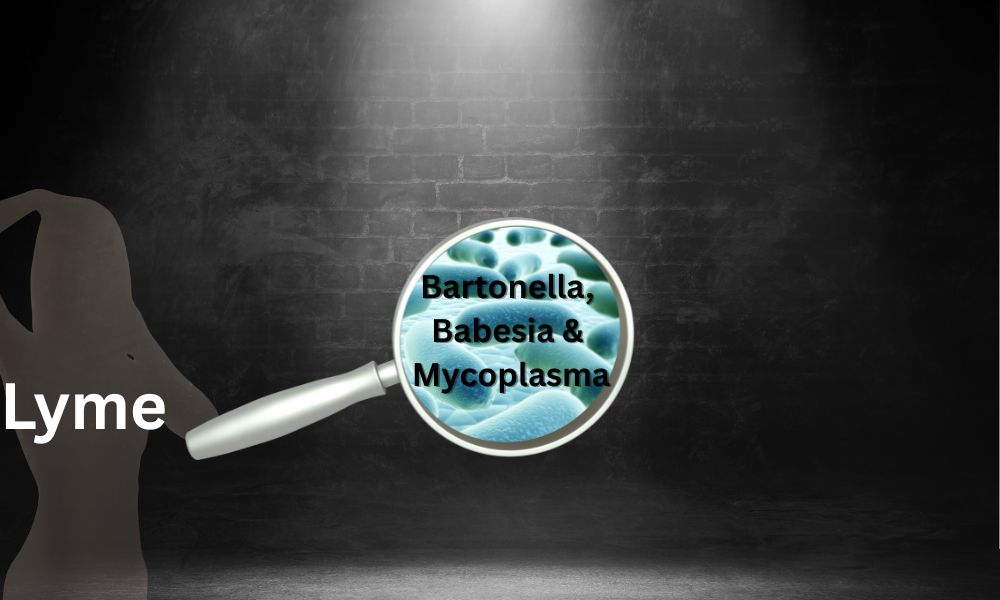
Shifting the "Lyme" Light: What Lyme Disease Is, What It Isn’t, and Why We Need a New Framework
Still stuck in the "Chronic Lyme" debate? It’s time to move beyond labels and focus on the real problem: persistent immune dysfunction driven by multiple infections.

Keeping an Eye on the Why: The Real Key to Healing
Diagnoses name the problem—but they rarely solve it. Real healing starts when you stop asking what you have and start asking why you have it.

Navigating Flare-Ups During CIRS Treatment: Finding the Sweet Spot
Feeling worse before you feel better? CIRS treatment can trigger intense flare-ups—but that doesn’t mean it’s not working. Here’s how to find your healing “sweet spot.”

Could Babesia Be Hijacking Your Brain?
Anxiety, air hunger, relentless insomnia—when nothing makes sense and nothing helps, it’s time to dig deeper. Could Babesia be the real culprit?

From Brain Fog to Psychosis: Could Bartonella Be the Missing Link?
Could a hidden infection be causing your mental health symptoms? From brain fog and panic attacks to full-blown psychosis, Bartonella is a stealth pathogen that's showing up in surprising places. Learn why researchers are connecting this bug to psychiatric illness—and how testing and treatment might offer new hope.

Could Lyme Disease Be Sexually Transmitted? The Possibility We Can’t Ignore
Most people think Lyme disease is only spread by ticks—but what if that’s not the whole story? In this post, Dr. Teresa Birkmeier-Fredal explores emerging research and clinical patterns that suggest intimate transmission may be possible. A must-read for anyone struggling with persistent Lyme symptoms or reinfection.

Risks and Benefits of antibiotics for VBIs
Are long-term antibiotics for Lyme and VBIs harmful or necessary? The answer isn’t black and white—context is everything.

Why Your SIBO Keeps Coming Back: The Hidden Role of Stress, Infections, and Toxins
SIBO isn’t just a gut issue—it’s a symptom of chronic stress, infections, and toxins. Fix the root cause to stop the cycle for good.

How Inflammation Causes Metabolic Syndrome: The Hidden Fire Behind Insulin Resistance, Weight Gain, and Fatigue
Metabolic syndrome isn’t just about diet—it’s chronic inflammation disrupting insulin, energy, and fat metabolism. Fix the root cause for lasting health.

Inflammation, Neurotransmitters, and the IDO Enzyme: Why Amino Acid Supplements Won’t Work Until You Fix the Root Cause
Inflammation disrupts neurotransmitter balance, making amino acid supplements ineffective—fix the root cause first for real results.
.jpg)
When Vector-Borne Infections Impact Entire Households: A One Health Case Study
A family's battle with vector-borne infections highlights the need for a One Health approach—treating humans, pets, and the environment together for lasting recovery.

Direct vs. Indirect Testing in Chronic Infections: Why It Matters
This article explores the challenges of diagnosing chronic infections, emphasizing the debate between direct and indirect testing methods.

Low Dose Naltrexone: A Powerful Immune Modulator with a Unique Role in CIRS
Low Dose Naltrexone (LDN) is a powerful immune modulator, especially for CIRS patients with HLA 4-3-53. Learn how LDN balances immunity, reduces inflammation, and improves overall health.

Hormone Hype vs. Reality: Why CIRS Sabotages Your Endocrine System
Hormone imbalances aren’t just about low levels—chronic inflammation (CIRS) disrupts hormone receptors, making treatments ineffective. Learn why fixing inflammation is the key to real hormone balance.

When B Vitamins Work Against You: The Candida Connection
B vitamins fuel energy and brain function—but they can also feed Candida. Learn how these essential nutrients impact fungal overgrowth, detox, and immune balance, and how to supplement wisely.

Low 25 OH Vitamin D: A Clue to Inflammation, Not Just a Deficiency
.jpg)
Amygdala Hypervigilance: Why Your Brain Thinks a Grocery Store is a War Zone
Is your brain stuck in panic mode? Amygdala hypervigilance makes everyday life feel like a battlefield. Learn how chronic inflammation rewires your brain and how to break free from the cycle of fear and stress.
.jpg)
Why Everyone Should Sauna:
Sauna therapy isn’t just for relaxation—it supports detox, immune balance, and stress relief by addressing microbial overgrowth, inflammation, and toxins at the root.

How to Use Sauna Therapy for Kids: Safe and Effective Guidelines
Sauna therapy can be safe and beneficial for kids when done correctly. Learn how to support detox, immunity, and relaxation with age-appropriate sauna guidelines.

How Near-Infrared (NIR) and Red Light Therapy Work—and Why They’re So Beneficial
Red and near-infrared light therapy boost mitochondrial health, reduce inflammation, and accelerate healing. Discover how this non-invasive therapy can transform your well-being.

Candida Overgrowth and Oxalate Production: The Overlooked Connection
Candida overgrowth can increase oxalate production, leading to joint pain, fatigue, and urinary issues. Learn how to break the cycle and restore gut balance.

The Hidden Risks of High-Oxalate Foods: Why Moderation Matters
Oxalates are naturally occurring compounds in many healthy foods, but consuming too much can lead to kidney stones, inflammation, and nutrient imbalances. Learn how to balance your diet without giving up nutrient-rich foods.

How to Reduce Your Daily Toxin Exposure
Every day, we’re exposed to toxins that impact our health. Learn simple, effective ways to reduce your toxic load, support detoxification, and protect your well-being.

Understanding Low Dose Antigen Therapy (LDA) and Low Dose Immunotherapy (LDI)
LDA and LDI retrain the immune system to reduce allergies, autoimmune reactions, and inflammation—offering lasting relief without immunosuppressants.

What Are Stealth Pathogens and How Do They Impact Your Health?
Stealth pathogens are hidden infections that evade detection and contribute to chronic health conditions. These pathogens, including bacteria, viruses, fungi, and parasites, can disrupt multiple body systems, leading to persistent symptoms such as fatigue, brain fog, joint pain, and hormonal imbalances. A functional medicine approach can help identify and treat these infections, offering long-term relief and improved health.
.jpg)
How to know if Child Might Have PANS or PANDAS
PANDAS and PANS are conditions that cause sudden and severe neuropsychiatric symptoms in children, often triggered by infections. Symptoms include OCD, anxiety, tics, emotional outbursts, and cognitive decline. Early recognition and intervention are essential for effective treatment, with a functional medicine approach offering a personalized plan to address the root causes of these conditions.
.jpg)
How Vector Borne Infections Are Often Misdiagnosed:
Vector Borne-Infections, like Borrelia, Babesia and Bartonella, are often misdiagnosed due to their ability to look like other chronic conditions and the limitations of standard tests. These hidden infections can lead to persistent symptoms such as fatigue, joint pain, and neurological issues. A functional medicine approach offers a comprehensive, personalized solution, using advanced diagnostics and targeted treatments to uncover and address the root causes of these health challenges.
